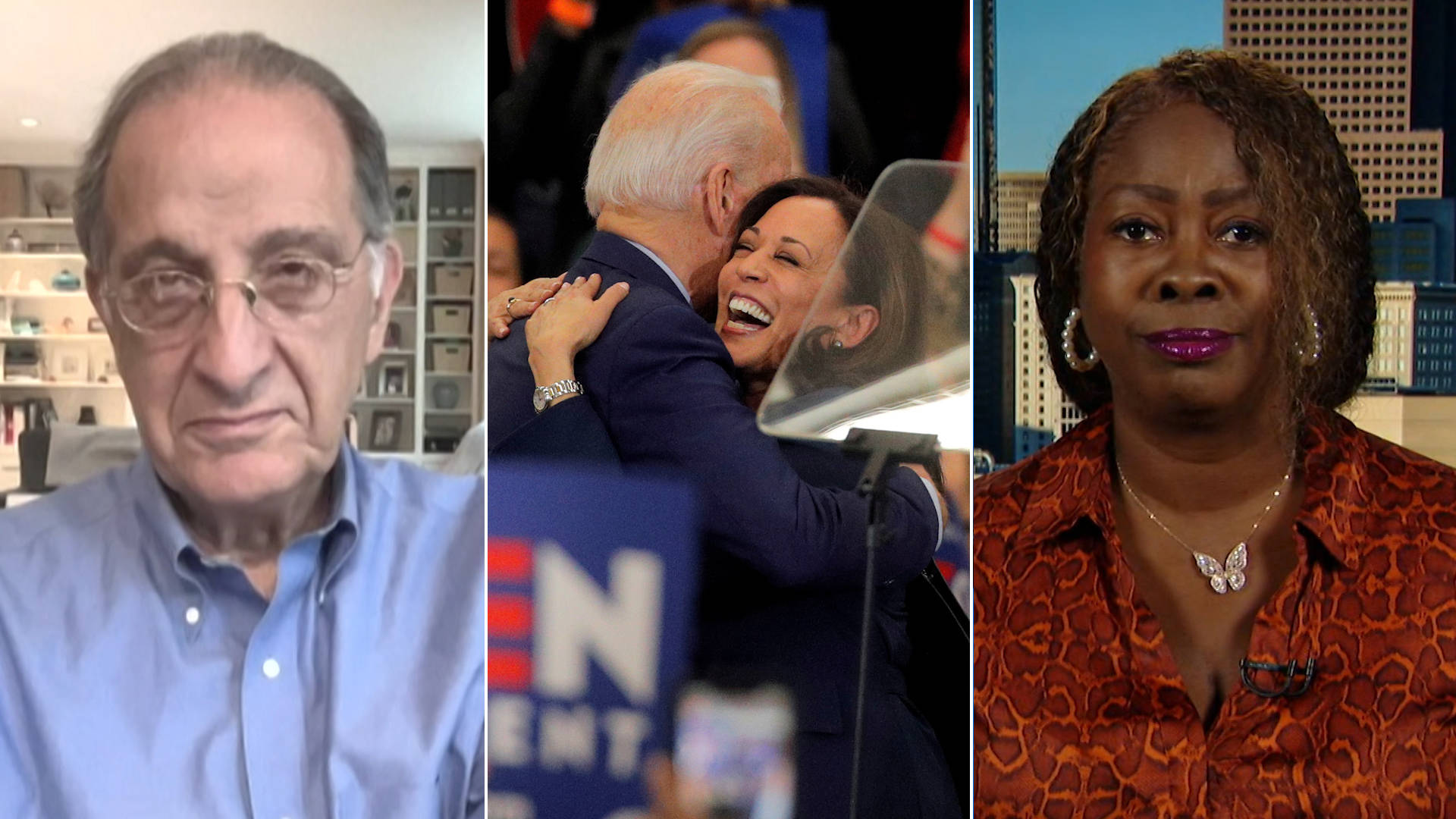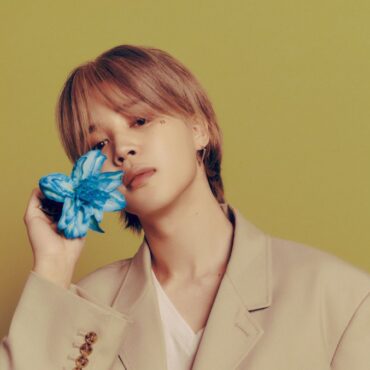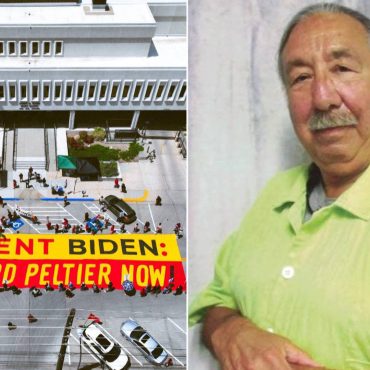This is a rush transcript. Copy may not be in its final form.
AMY GOODMAN: This is Democracy Now!, democracynow.org, “War, Peace and the Presidency.” I’m Amy Goodman. That was “Oh Yeah” by Yello.
We look more now at President Biden’s announcement Sunday that he’s dropping his bid to seek reelection, and what comes next in the four months before Election Day. Biden endorsed his vice president, Kamala Harris, who quickly received the backing of many powerful Democrats.
Biden’s decision comes just four weeks before the Democratic National Convention is set to begin in Chicago August 19th. We’ll be broadcasting live all that week, expanded to two hours, from Chicago. But the DNC has floated the idea of having a virtual roll call vote beforehand. Meanwhile, the DNC rules committee is set to meet publicly online this Wednesday. It’ll be live-streamed for everyone to watch.
To talk more about the steps forward and if there should be an open convention, we’re joined by two guests. In Washington, D.C., Jim Zogby is with us, longtime member of the Democratic National Committee, former DNC executive committee member from 2001 to 2017. Earlier this month, he proposed to the DNC chair what he called an open, transparent and energizing process for the DNC to choose its nominee if Biden steps aside. And joining us from Atlanta, Georgia, is LaTosha Brown, co-founder of Black Voters Matter, longtime community organizer and political strategist.
We welcome you both back to Democracy Now! LaTosha Brown, let’s begin with you. Your response to President Biden dropping out of the presidential race and almost immediately endorsing Kamala Harris, and what you think should happen next?
LATOSHA BROWN: You know, I think that he was absolutely courageous and had a lot of integrity in doing that. And I think it’s created a whole different kind of energy that has gone in the party. And I think it was a really smart move, the way that I think he made the announcement, in separating the two announcements.
But what I will say is, going forward, I think this is a moment that the party — we have less than four months. You know, we have a major threat to democracy on the other side, as Trump and the Vance ticket. And so, this is a time that I think that we need to be organizing. We need to buckle down and literally go forward, going into this convention not necessarily saying an open process. I think there should be a process that the rules committee sets in place.
But let’s be clear: There were 14 million people in the primary that voted for the Biden-Harris ticket. And so, with the full endorsement — and in full endorsement of Biden, I don’t think that it was just about personalities, that why people voted for Biden. It was really about policy. And some of those policies, people really want to see supported.
And so, going forward, I think, to really be able to keep down the confusion, the chaos — and when we think about historically where brokered conventions have gone, they’ve not gone very well for the Democrats. So, this is the moment to be unified, to actually close ranks, to have a convention that people leave feeling energized and feeling like we’ve got our boots on the ground, we’re ready to go.
AMY GOODMAN: DNC member Jim Zogby, your thoughts?
JAMES ZOGBY: My thought, look, I wrote in the plan that I submitted to Jaime weeks ago that there should be an open convention.
AMY GOODMAN: You’re talking Jaime Harrison, the —
JAMES ZOGBY: Jaime Harrison, yes.
AMY GOODMAN: — head of the Democratic National Committee.
JAMES ZOGBY: And I still think that an open convention is important, for two reasons. One is, it will make the eventual nominee stronger. I believe it will be Kamala Harris. I will support Kamala Harris. But I feel that if she went through a process, as she herself has said she wants to earn it, I think with town halls, with competing candidates, with a chance to air competing views, it will both energize the base, it will create a more dynamic convention, and it will make her a stronger candidate going into the fall. She wants to earn it. I believe she has the right to earn it.
I think she will, like I said, be the nominee. I’ll endorse her. But I think an open convention is what democracy needs from our party right now. Look, I’ve been on the DNC for 31 years. We cannot just be props who, because somebody says, “Vote this way,” we all vote that way. I think she wants to earn it, and I think we need — we need to respect that and create a process where she can earn it and where democracy can be shown to be the hallmark of what our party is about. We don’t just fall in line.
AMY GOODMAN: Just practically, explain what that would look like, Jim.
JAMES ZOGBY: Well, look, what we laid out was a plan that said that DNC members would nominate. Forty members would be necessary for a candidate to be placed on the slate. They’d have to come from all four regions of the party. There are about 440 DNC members, and so you would get a very small number. At this point, I don’t know if anyone would actually want to get in, but I think it would be a good testing ground for some people who are looking to the future — Governor Shapiro or, you know, Governor Whitmer or any others — who would say, “Yeah, let me put my hat in the ring here.” And we’d have two televised town halls where the candidates would be asked questions, they would commit to endorsing whoever the winner is, and they would commit to running positive campaigns. We’d have floor votes at the convention.
Like I said, I think Kamala would win on the first round, without a doubt. But just being on the stage with the rest of what we would call the bench, those others who are in line in the future to be leaders of our party, would, I think, be an important visual for the American people. We would not be like the Republicans, slamming each other and slashing each other’s records. We would be presenting alternate visions or our own credentials. And then, at the convention, we’d have this exciting process that people would pay attention to. I don’t want a virtual vote, that’s been called for, because it’s too gimmicky. And frankly, I think people have stopped watching conventions because there’s nothing unexpected about them. There’s nothing interesting to see. This would be a really dynamic process. It wouldn’t be ’68. It would be 1960, when John Kennedy won in a fantastic convention that went multiple ballots. I don’t think we’d have multiple ballots. But people would say, “What’s going to happen? How is this going to work?” And I think it would be important for the country and important for the candidate who wins to have emerged successful from that process.
AMY GOODMAN: And, LaTosha Brown, what would you envision for what should happen, what should happen at the DNC? How do you disagree with Jim Zogby?
LATOSHA BROWN: I disagree because I think that in this idea of she has to earn it, I think that she has earned it, that, ultimately —
AMY GOODMAN: Now, she herself said —
LATOSHA BROWN: — there have been 80 million votes —
AMY GOODMAN: She herself said —
LATOSHA BROWN: — that voted prior. There were 14 million that voted for the Biden-Harris ticket just in the primary. And then, as we go in the primary, this is the time, I think, for us to really buckle down. It would be the delegates, the delegates that have already been — that have already been assigned for the Biden and the Harris campaign, that they would have the opportunity to cast that, that I think that, ultimately, to go on the convention, that sounds great if all things were — go exactly as planned.
This is not the moment for us to take a risk on having chaos or confusion or someone who actually wants power to jump up and say, “Well, I’m going to create some confusion, because I think that there needs to be another way forward.” This is a moment that we have to defeat Trump, that under no circumstances — we have to go — we have to be unified. I am more concerned about power than I am about a process that, ultimately, has not gone well in the past for the Democratic Party.
AMY GOODMAN: LaTosha, she herself, Kamala Harris, said, “My intention is to earn and win this nomination.”
LATOSHA BROWN: I am completely in support of her. I understand her need. I understand what she’s raising. I’m raising, as someone on the ground, that in four months we actually have to do a lot of work, that there will be a lot of tacks coming. What I am saying is that in this process, I think it can be simplified. I think that we can go forward. I think the delegates can push their issues.
I don’t think necessarily a process online is gimmicky. I think that what it does is it streamlines the process so that we can move forward, come in the convention having clarity, so that we — clarity and no confusion, and a lack — and I think it minimizes the opportunity for chaos.
AMY GOODMAN: Jim Zogby, I want to ask you about the whole movement to have Biden removed. The protests, everywhere he went, were not around his age. The protests were around Gaza and his support and supplying weapons to Israel, in decimating Gaza. It is quite something that it just so happens that this week in Washington, Netanyahu is coming, invited by the House speaker, but then endorsed, under a lot of pressure, by Hakeem Jeffries and Chuck Schumer. He will address a joint session of Congress on Wednesday.
I want to read from a post by Linda Sarsour, a Palestinian Muslim American organizer who’s been very involved in the “uncommitted” movement. She wrote on Instagram, quote, “They will never admit this but Joe Biden became a political liability for the Democratic Party on Gaza. Period. The media won’t say this. The pundits will talk around it and the party will say it’s not the case as not to offend their pro-Israel donors — but they knew that they could not win states like Michigan, Georgia, Wisconsin and they had lost big chunks of important constituencies like young people, Arab and Muslim voters, and many progressives. The fact that anyone thinks we are going to believe that one dismal debate performance was the reason they pushed Biden out is just ludicrous and unbelievable. We are smarter than they think we are.
“This is a small win for our movements. This is because of us, because of you. For over 9 months, you made your voice heard. You organized, you mobilized, you interrupted and disrupted, you passed ceasefire resolutions, you blasted emails and calls to the White House, you testified at local hearings, you occupied Congresspeoples’ offices and college campuses, you posted, you made sure no one forgot about the Palestinian people and you were clear that Joe Biden and his Administration were complicit.”
So, this is what Linda Sarsour said. You’re the head of the Arab American Institute. You also — we last had you on talking about the “uncommitted” vote. One of the first tests this week of Kamala Harris is she is going to be meeting with Israeli Prime Minister Benjamin Netanyahu. Your thoughts on what she should do? And what’s going to happen with the “uncommitted” vote at this point? And if you knowing anything about the protests at the DNC that have been planned? Amazingly, far more protest has been planned — not clear it will now happen — than protest of Trump in Milwaukee.
JAMES ZOGBY: Well, look, the genocide continues, and continues unabated. Areas that were designated by Israel as safe zones are the ones that are being attacked. And the horror, the nightmare of 2 million people being literally shuffled around like cattle in the slaughterhouse, being moved from this area to that area and bombed in every area that they go, is just traumatizing to a whole constituency here. And it’s not just Arab and Muslim voters, but, as the polling that we’ve seen shows, young voters, Black, Latino, Asian voters. A significant chunk of them have moved to the point where they’re furious about the fact that America appears to be complicit — not appears to be, but has been complicit.
What will Kamala Harris do? Look, from a conversation I had with her and from people I know in her — who advise her, she has much greater empathy for Palestinians than we’ve seen from President Biden. Disturbingly, we’ve not seen that from President Biden. He’s mentioned it at times, but not with any real depth of feeling as I’ve seen from the vice president. I would be surprised if she had a hale and hearty embrace and, “Oh my god, it’s so great to see you, and I met Golda Meir, and blah, blah, blah.” I think she’ll be a little sterner. I think she’ll be a little more distant. She is still the vice president. The policy still comes from the president. But I would think that she would make her mark in this meeting, if it in fact happens, that she is not on board with the same level of support.
Look, America sees Israel as an ally. That’s not going to change. But America has to treat Israel as an ally that’s gone astray and that has been doing things that are harming not just Israel — most importantly, Palestinians — but also harming America’s image across the Middle East and the world. We are isolated today as a country. We’re not the leader of the human rights and free world communities. We are, in fact, seen as complicit in a war of genocide and blocking international efforts to stop Israel from doing what they’re doing.
I would hope Kamala Harris, as a woman of color, as what she has herself said, has a different feeling about these issues than the president does. And I hope we’ll see that on display when she meets with Netanyahu.











Post comments (0)